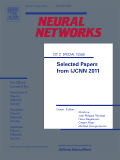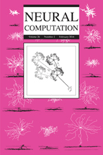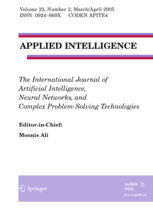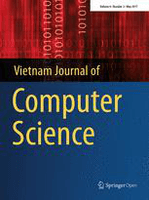
Foundations and Trends in Machine Learning
Scope & Guideline
Elevating Understanding in the Realm of Machine Learning
Introduction
Aims and Scopes
- Theoretical Foundations of Machine Learning:
The journal emphasizes rigorous theoretical approaches to understanding machine learning algorithms, including topics such as PAC-Bayes bounds, Riemannian geometry, and approximate message passing. - Practical Applications and Frameworks:
Papers often explore practical implementations of machine learning techniques, such as automated deep learning, reinforcement learning, and federated learning, providing frameworks that are user-friendly and accessible. - Interdisciplinary Approaches:
The journal covers interdisciplinary themes that intersect machine learning with other fields, such as statistics, economics (e.g., auctions), and causal analysis, promoting a broader understanding of machine learning's implications. - Emerging Techniques and Technologies:
Emerging methodologies like graph neural networks, dynamical variational autoencoders, and automated theorem proving are core areas of focus, showcasing innovative approaches in the field.
Trending and Emerging
- Causal Inference and Fairness in Machine Learning:
The emergence of causal fairness analysis signifies a growing interest in understanding the implications of machine learning decisions in societal contexts, emphasizing the need for fairness and accountability. - Automated and Autonomous Machine Learning:
The development of frameworks like AutonoML indicates a trend towards automating the machine learning process, making it more accessible to non-experts and enhancing efficiency in model training and selection. - Advanced Reinforcement Learning Techniques:
The focus on advanced reinforcement learning methodologies, including model-based approaches and risk-sensitive strategies, suggests a shift towards more complex and effective learning paradigms in dynamic environments. - Graph Neural Networks and Their Applications:
The increasing attention to graph neural networks, particularly their applications in natural language processing, highlights the growing recognition of the importance of structured data and relationships in machine learning.
Declining or Waning
- Traditional Statistical Methods:
There is a noticeable decline in publications focusing solely on traditional statistical methods as the field shifts towards more complex, data-driven approaches that incorporate machine learning techniques. - Basic Reinforcement Learning Techniques:
Basic reinforcement learning topics have seen a decrease as more sophisticated and nuanced approaches, such as model-based reinforcement learning and risk-sensitive methods, gain popularity. - Linear Models and Simpler Algorithms:
The journal seems to be moving away from discussions centered on simpler algorithms and linear models in favor of more advanced techniques that leverage deep learning and complex architectures.
Similar Journals

NEURAL NETWORKS
Transforming Insights into Intelligent SolutionsNEURAL NETWORKS, an esteemed journal with the ISSN 0893-6080 and E-ISSN 1879-2782, is published by Pergamon-Elsevier Science Ltd in the United Kingdom. This influential journal, established in 1988 and continuing its publication through 2024, is recognized for its significant contributions to the fields of Artificial Intelligence and Cognitive Neuroscience, ranking in the Q1 category in both disciplines as of 2023. With a strong Scopus rank of #4/115 in Cognitive Neuroscience and #35/350 in Artificial Intelligence, and a commendable percentile of 96th and 90th respectively, NEURAL NETWORKS stands at the forefront of academic research. Researchers, professionals, and students can benefit from the journal's rigorous peer-review process and the dissemination of groundbreaking findings that shape understanding in artificial intelligence methodologies and their cognitive applications. While the journal currently operates under traditional access options, it serves as a vital resource in fostering innovations and cross-disciplinary collaboration.

PROGRAMMING AND COMPUTER SOFTWARE
Advancing Software Development Through Rigorous ResearchPROGRAMMING AND COMPUTER SOFTWARE is a distinguished journal committed to advancing the field of software development and programming methodologies. Published by PLEIADES PUBLISHING INC, this journal has been a valuable resource since its inception in 1978, reaching out to researchers, professionals, and students alike. With an emphasis on rigorous peer-reviewed articles, the journal holds a Q3 ranking in the realm of Software according to the latest 2023 Category Quartiles. Though it does not offer open access, the journal ensures that high-quality research is disseminated to its audience, providing insights into evolving programming techniques, software engineering challenges, and innovative solutions. With its convergence of years extending to 2024, PROGRAMMING AND COMPUTER SOFTWARE remains a pivotal publication, fostering a deeper understanding of the complexities in computer programming while supporting the broader software community.

NEURAL COMPUTATION
Unraveling the complexities of neural processes through computation.NEURAL COMPUTATION, published by MIT PRESS, is a leading academic journal that focuses on the interdisciplinary field of neural computing, combining insights from artificial intelligence, cognitive neuroscience, and computational modeling. With an impressive impact factor and consistently high rankings—being positioned in the Q1 category of Arts and Humanities and Q2 in Cognitive Neuroscience—this journal serves as a vital resource for researchers and professionals interested in understanding the complex interactions between neural processes and computational systems. Founded in 1995 and continuing through its converged years until 2024, NEURAL COMPUTATION publishes cutting-edge articles that advance theoretical knowledge and practical applications in both fields. While it does not provide open access, the journal ensures rigorous peer-review processes, making it an essential platform for disseminating significant research findings. With its commitment to fostering innovation and understanding at the intersection of neuroscience and computation, NEURAL COMPUTATION stands out as a cornerstone for academic exploration and discovery.

Quantum Machine Intelligence
Advancing the frontier of quantum algorithms and AI.Quantum Machine Intelligence is a leading academic journal published by Springer Nature, focusing on the rapidly evolving intersection of quantum computing and artificial intelligence. With an impressive impact factor reflected in its prestigious ranking in various categories—Q1 in Applied Mathematics, Computational Theory and Mathematics, and Theoretical Computer Science, alongside Q2 in Artificial Intelligence and Software—this journal serves as a vital platform for disseminating innovative research from 2019 to 2024. Researchers, professionals, and students are encouraged to engage with the journal’s content, which features high-quality peer-reviewed articles that explore theoretical foundations and practical applications of quantum technologies in machine intelligence. Although the journal operates under traditional subscription models, it is committed to advancing open academic discourse and accessibility in the digital age. With Scopus rankings that place it among the top echelons of its fields, the journal is an essential resource for anyone interested in the transformative potential of quantum algorithms and AI.

Machine Learning and Knowledge Extraction
Advancing Insights in Machine Learning and Data ExtractionMachine Learning and Knowledge Extraction, published by MDPI, is an esteemed Open Access journal that has been at the forefront of disseminating cutting-edge research since its inception in 2019. Based in Switzerland, this journal has established itself as a significant contributor to the fields of Artificial Intelligence and Engineering, currently ranking in the Q2 category in Artificial Intelligence and Q1 in Engineering (miscellaneous) for 2023. With a notable Scopus ranking, it holds the 35th position out of 204 in Engineering, placing it in the 83rd percentile, while it ranks 127th out of 350 in Computer Science, reaching the 63rd percentile. Machine Learning and Knowledge Extraction serves as a vital platform for researchers, professionals, and students alike, promoting insightful discussions, innovative methodologies, and profound discoveries in machine learning and data extraction techniques. The journal's open access model ensures that groundbreaking research is widely accessible, fostering collaboration and advancing knowledge across various disciplines.

Journal of Computer Science & Technology
Bridging theory and practice in computer science research.The Journal of Computer Science & Technology, published by UNIV NAC LA PLATA, FAC INFORMATICA, serves as a vital platform for disseminating high-quality research in the expansive fields of computer science, including but not limited to Artificial Intelligence, Computer Science Applications, Computer Vision, and Software Development. Since its inception in 1999, this Open Access journal has prioritized accessibility, ensuring that groundbreaking research from Argentina and beyond reaches a global audience of scholars, practitioners, and students alike. With a broad spectrum of articles indexed in Scopus, the journal operates within the Q3 quartile across various categories, reflecting its commitment to evolving scholarship in the technology domain. Researchers interested in advancing their knowledge and contributing to the field will find the journal an essential resource for contemporary discussions and developments in computer science.

Machine Intelligence Research
Shaping Tomorrow's Technologies Through Rigorous ResearchMachine Intelligence Research is a premier academic journal published by SPRINGERNATURE, dedicated to advancing knowledge in the rapidly evolving fields of Artificial Intelligence, Applied Mathematics, and more. With its ISSN 2731-538X and E-ISSN 2731-5398, the journal is recognized for its impact, holding a distinguished position in various Q1 categories for 2023, including Computer Vision and Pattern Recognition and Control and Systems Engineering. Operating under an Open Access model, it ensures that groundbreaking research from China and around the world remains accessible to a global audience, promoting collaboration and innovation. As a beacon for researchers, professionals, and students, Machine Intelligence Research aims to disseminate high-quality research findings, innovative methodologies, and influential theories, thereby shaping the future landscapes of science and technology.

APPLIED INTELLIGENCE
Advancing the frontiers of Artificial Intelligence applications.Applied Intelligence is a prominent peer-reviewed journal that has been instrumental in advancing the field of Artificial Intelligence since its inception in 1991. Published by Springer, a reputable name in academic publishing, the journal focuses on the innovative applications of intelligent systems, algorithms, and methodologies across various disciplines. With an impressive Q2 ranking in the Artificial Intelligence category for 2023, and a Scopus rank of #117 out of 350 in its field, Applied Intelligence is recognized for its significant contributions and rigorous standards. The journal is accessed primarily through subscription, ensuring that high-quality research reaches the academic community and industry professionals alike. Its commitment to disseminating cutting-edge research makes it an invaluable resource for researchers, practitioners, and students interested in the practical implications of AI advancements. Join a community dedicated to exploring the transformative power of artificial intelligence and stay ahead in this ever-evolving field!

Vietnam Journal of Computer Science
Pioneering research that drives computational excellence.Vietnam Journal of Computer Science, published by World Scientific Publishing Co Pte Ltd, serves as a prominent platform for researchers and professionals in the rapidly evolving field of computer science. Launched as an Open Access journal in 2013, it aims to disseminate high-quality research across various subfields, including Artificial Intelligence, Computational Theory and Mathematics, Computer Vision, and Information Systems. With its ISSN 2196-8888 and E-ISSN 2196-8896, the journal provides valuable insights and contributes to the growing body of knowledge in computer science, particularly in Southeast Asia. Despite its relatively recent establishment, the journal has achieved significant rankings, including Q3 status in multiple categories and notable visibility in Scopus metrics, evidencing its commitment to fostering innovative research. This journal is essential for those looking to stay at the forefront of computational advancements and applications, particularly in Vietnam and beyond, facilitating an engaging dialogue among scholars and industry professionals.

Frontiers in Neurorobotics
Shaping the Future of Robotics with Cutting-edge ResearchFrontiers in Neurorobotics is a leading open access journal that bridges the fields of artificial intelligence and biomedical engineering, dedicated to advancing the understanding and application of neural mechanisms in robotics. Published by FRONTIERS MEDIA SA in Switzerland, this journal has been disseminating innovative research since its inception in 2007. With an aim to foster interdisciplinary collaboration and share cutting-edge findings, Frontiers in Neurorobotics holds a commendable position in the academic landscape, ranking in the Q2 category for both Artificial Intelligence and Biomedical Engineering as of 2023. Researchers will find it particularly valuable due to its broad scope, which encompasses everything from theoretical frameworks to practical applications in neurorobotics. The journal is committed to open access, ensuring that its contents are readily available to a global audience, thus enhancing visibility and engagement with trailblazing research in this dynamic field.